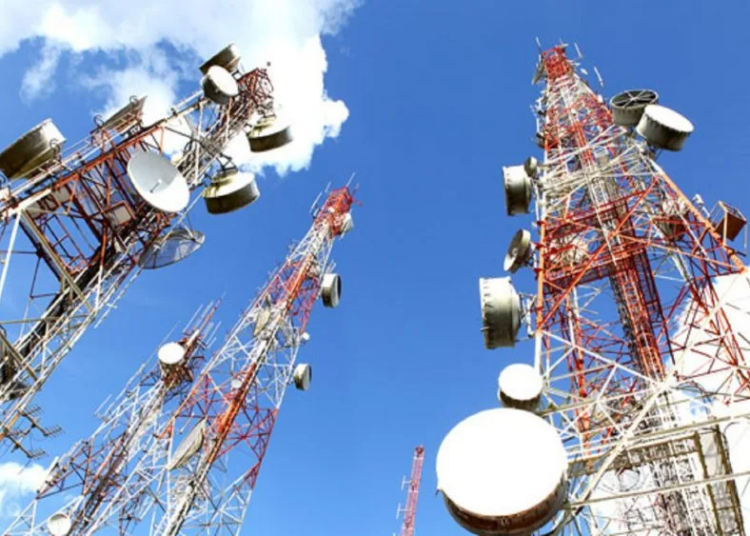The recent approval by the Nigerian Communications Commission (NCC) of a 50 per cent increase in telecommunication tariffs has sparked outrage among Nigerians, who already feel the pinch of high costs and poor industry.
The decision to increase tariffs for voice calls and data comes as many Nigerians struggle to cope with the economic challenges brought about by some of the harsh policies of this administration.
It is no secret that the telecommunications industry in Nigeria has been plagued by poor service delivery for years. Despite the high cost of voice calls and data, many Nigerians still experience frequent call drops, downtime, and slow internet speeds. This has left consumers feeling frustrated and disillusioned with the industry.
The NCC’s decision to approve a 50 per cent increase in tariffs for voice calls and data is a further blow to consumers struggling to make ends meet. The tariff increase will only burden consumers, who already feel the impact of rising inflation and high unemployment rates.
While the telecommunications operators argue that the increase in tariffs is necessary to improve service delivery and invest in infrastructure, many Nigerians are skeptical about whether the operators will use the additional revenue to improve the quality of their services. Telecom operators have been accused of prioritizing profits over service delivery, leading to consumers paying exorbitant prices for subpar services.
In all fairness, telecommunication tariffs in Nigeria have long been considered affordable, particularly compared to other sectors where prices have steadily risen. However, the prevailing economic challenges, rising inflation, the removal of subsidies and increased energy costs have made it increasingly difficult for telecom companies to maintain profitability.
Removing subsidies and hikes in electricity tariffs have skyrocketed operational costs, affecting telecom companies. These sectors contribute directly to the cost of telecom operations, and the rising costs have started to affect workers. Employers cannot adjust workers’ salaries as they, too, are struggling with rising costs.
Beyond the costs, Nigerians are battling with the persistent decline in telecom service quality, as subscribers continue to experience issues with weak signal strength and poor network performance.
MTN, Glo, Airtel, and 9mobile, the country’s major telecom operators, have been struggling to address frequent call drops, slow data speeds, and unreliable network coverage.
However, the telcos have said that Nigerians will continue to experience poor telecommunication services as long as social problems such as wilful damage to telecommunications infrastructure and epileptic power supply persist in the country.
The Association of Licensed Telecommunications Operators of Nigeria (ALTON) appealed for government intervention to end the issue of poor services in the industry.
The NCC has also attributed poor telecom services to the destruction of telecommunication infrastructure and facilities in the country.
High-quality telecom services are essential for effective communication and connectivity. They enable seamless interaction among individuals and businesses.
Poor service quality can disrupt communication, leading to inefficiencies. Reliable telecom services are crucial for various sectors, including banking, education, and healthcare.
For instance, the banking sector relies on telecom networks for mobile banking. Educational institutions use these services for online learning platforms, and healthcare facilities depend on them for telemedicine services.
The telecommunications industry in Nigeria needs reform. The NCC must do more to hold operators accountable for their poor service delivery and ensure that consumers are getting value for their money. Strict regulations and oversight should accompany the increase in tariffs to ensure that operators invest in infrastructure and improve the quality of their services.
Furthermore, the NCC should prioritise consumer protection and ensure that consumers are not exploited by telecom operators who are more concerned with profits than providing quality services. The NCC should also promote competition in the industry and encourage new entrants to enter the market, ultimately benefiting consumers by providing them with more choices and better services.
The recent increase in telecom tariffs in Nigeria is a cause for concern for consumers who are already feeling the impact of high costs and poor service delivery in the industry. The NCC must do more to hold operators accountable and ensure that consumers are getting value for their money.
It is time for the telecommunications industry in Nigeria to prioritise consumer protection and invest in improving service delivery for the benefit of all Nigerians.
Addressing the industry’s challenges will enhance service quality and sustainability. With continuous improvements, the future of Nigeria’s telecom sector looks promising.
We’ve got the edge. Get real-time reports, breaking scoops, and exclusive angles delivered straight to your phone. Don’t settle for stale news. Join LEADERSHIP NEWS on WhatsApp for 24/7 updates →
Join Our WhatsApp Channel










